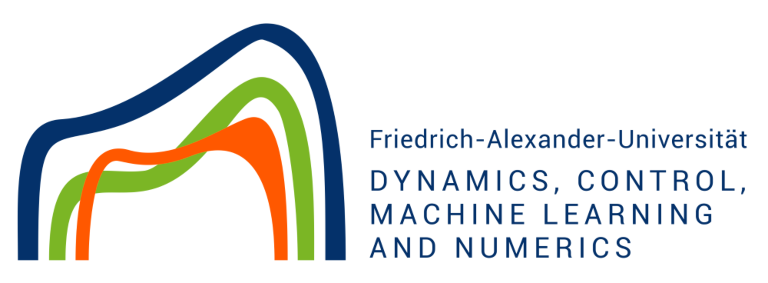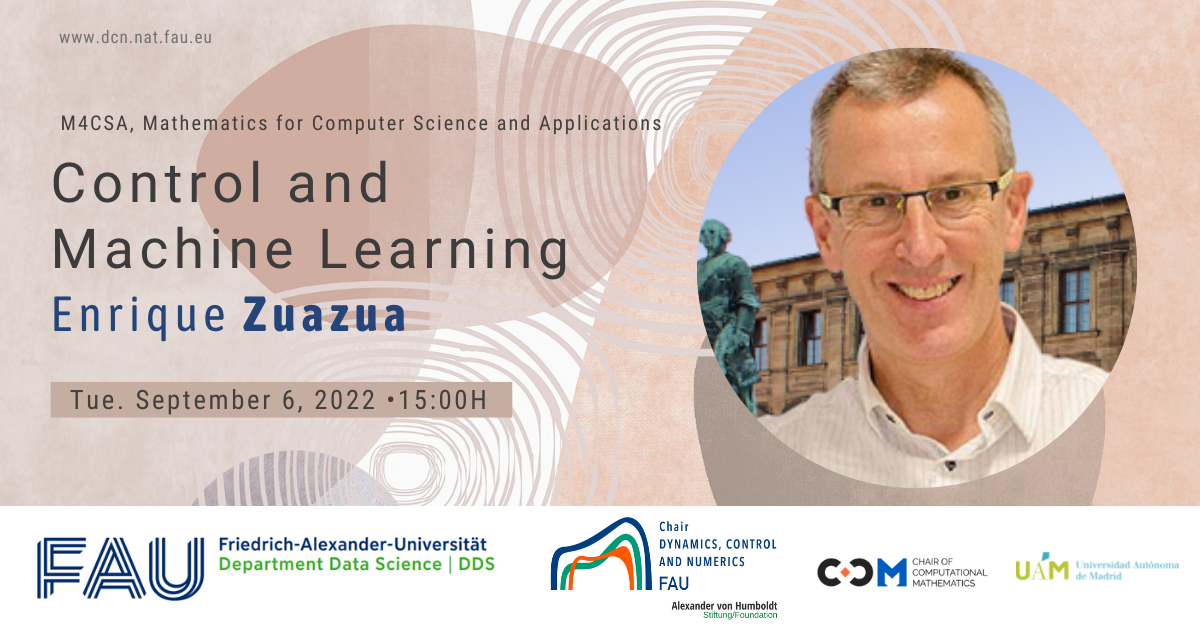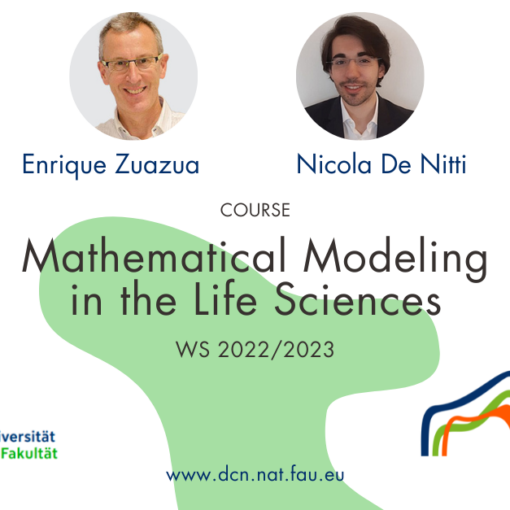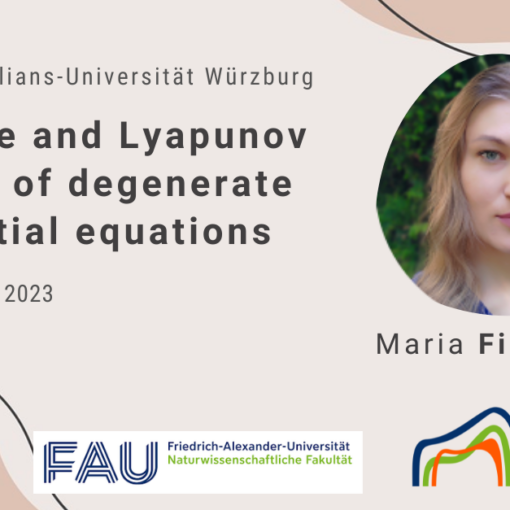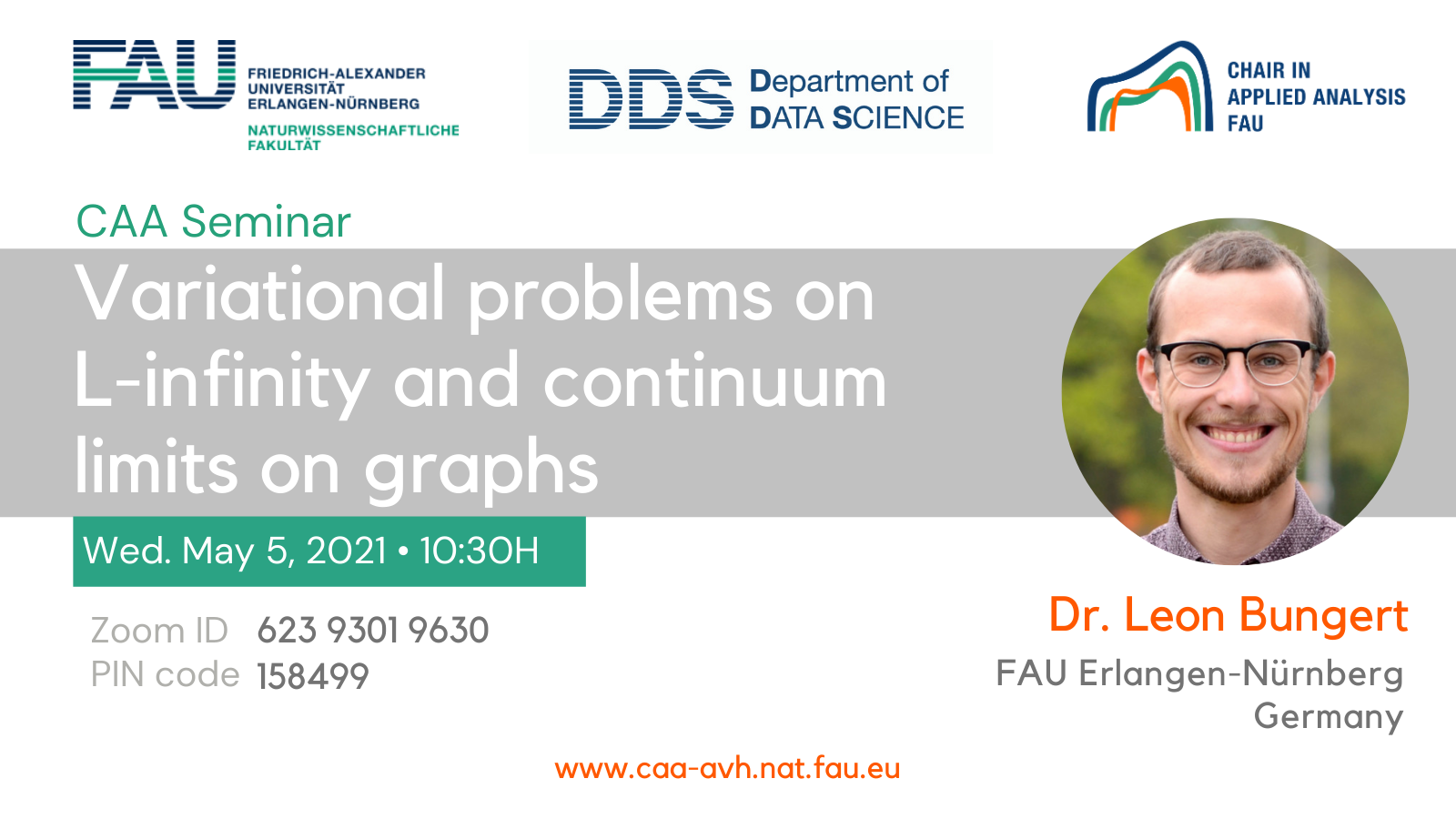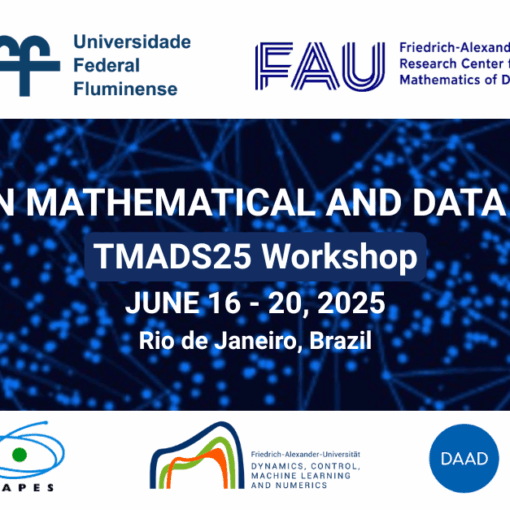Date: Tue. September 6, 2022
Event: M4CSA, Mathematics for Computer Science and Applications.
Title: Control and Machine Learning
Speaker: Our Head Prof. Enrique Zuazua
Affiliation: Friedrich-Alexander-Universität Erlangen-Nürnberg (Germany)
Our Head Enrique Zuazua talked about “Control and Machine Learning” at the M4CSA, Mathematics for Computer Science and Applications.. The conference focused on recent advances in applied and computational harmonic analysis. The scope of the conference includes randomized algorithms, convolutional neural networks, deep learning, graph-based signal processing, quantum computing, wavelet theory, time-frequency analysis, sampling theory, image processing, compressed sensing, frame theory, phase retrieval, and related aspects of machine learning, data science and applied mathematics.
Abstract. In this lecture we shall present some recent results on the interplay between control and Machine Learning, and more precisely, Supervised Learning and Universal Approximation. We adopt the perspective of the simultaneous or ensemble control of systems of Residual Neural Networks (ResNets). Roughly, each item to be classified corresponds to a different initial datum for the Cauchy problem of the ResNets, leading to an ensemble of solutions to be driven to the corresponding targets, associated to the labels, by means of the same control.
We present a genuinely nonlinear and constructive method, allowing to show that such an ambitious goal can be achieved, estimating the complexity of the control strategies. This property is rarely fulfilled by the classical dynamical systems in Mechanics and the very nonlinear nature of the activation function governing the ResNet dynamics plays a determinant role. It allows deforming half of the phase space while the other half remains invariant, a property that classical models in mechanics do not fulfill. The turnpike property is also analyzed in this context, showing that a suitable choice of the cost functional used to train the ResNet leads to more stable and robust dynamics.
This lecture is inspired in joint work, among others, with Borjan Geshkovski (MIT), Carlos Esteve (Cambridge), Domenec Ruiz-Balet (IC, London) and Dario Pighin (Sherpa.ai)
Recording/Video
(Courtesy by M4CSA organizers)
Watch on YouTube
If you like this, you don’t want to miss out our upcoming events!
